Happy World NGO Day!
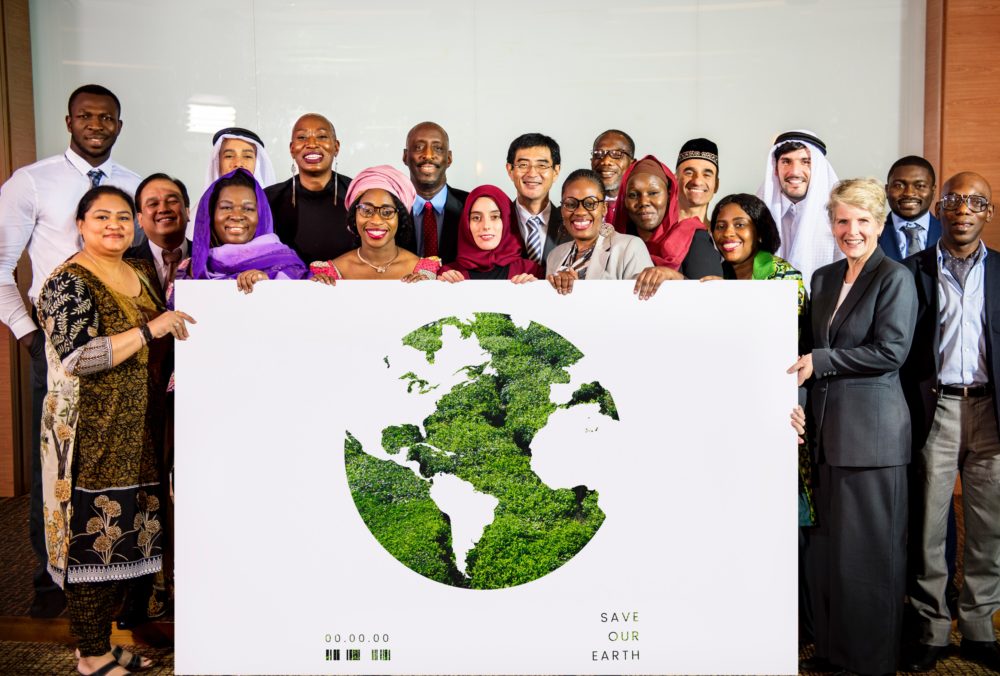
February 27th is World NGO Day! At PfD, we recognize the value of NGOs in promoting equity, peace, and alleviating the challenges faced by underserved communities. Today, we think that it is important for those who can to extend their support to NGOs and join them in making a difference in our world.
Non-governmental organizations play a critical role in the international community; helping the poor to improve their livelihoods and working alongside marginalized communities to address various problems. As a non-profit NGO, PfD strives to strongly impact the communities with which we work. Our work in countries such as Nigeria, Benin, and CambodiaBaixakis has benefited many individuals, families, and entire communities. Over the years, we have diligently implemented projects that have promoted agricultural development, strengthened health systems, and economic betterment.
In Cambodia, our work to prevent and control the spread of malaria has reduced morbidity and mortality rates in remote communities. So far, nearly 9,000 people at risk for contracting malaria have been educated about malaria risk, prevention, diagnosis, and treatment. Additionally, they were advised to use bed nets in order to prevent mosquito bites that result in the spread of malaria. By the end of 2020, we aim to identify the main determinants of malaria transmission so that we can reduce the incidence of malaria to less than one infection per 1000 at risk Cambodians.
In Nigeria, PfD improved and expanded access to safe drinking water for over 56,000 residents of 58 rural communities. These communities were also provided sanitation facilities such as hand washing stations and latrines. Another ongoing project in Nigeria is a micro-finance project through which we give out loans to improve the livelihoods the underprivileged, and provide scholarships for adolescent girls.
Lastly, in Benin, our ongoing PINEX project is helping pineapple farmers improve their income and create job opportunities within their communities. So far 3,800 farmers have received training on processing and exporting high quality pineapple to European markets. Additionally, PfD is working with local partners to develop training modules on farm management in order to continue training more local farmers.
Today, we want to express our admiration for the world’s network of NGOs and their staff who work tirelessly to advance the many causes that they care about. We also want to urge you to show your support today by donating to PfD so that we can continue with the important work that we do.
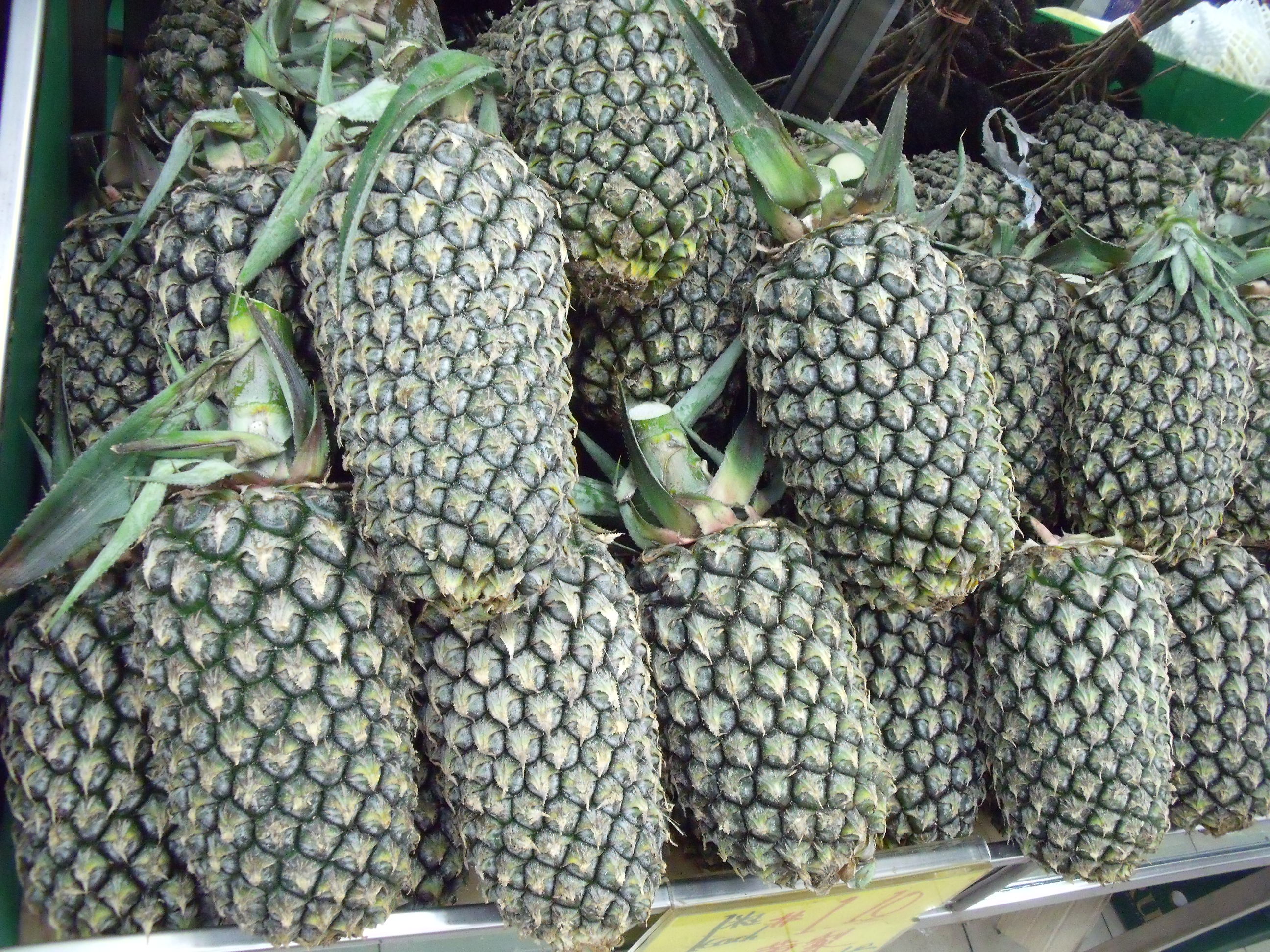
Today, June 27th, is World Pineapple day! At PfD we love this sweet, tangy, and delicious fruit, which has been integral to our efforts to promote economic growth in Benin. In this West African nation, Pineapples are the third most valuable crop in terms of GDP. Our Pineapples for Export (PINEX) project, launched in 2015, aims to strengthen all levels of the Beninese pineapple value chain.
Through activities such as building producers’ technical capacity and improving their access to resources (i.e. capital), PINEX is enabling the Beninese pineapple industry to increase productivity, improve quality, and increase exports. As Benin is heavily dependent on its agricultural trade, the Pineapple industry is improving the livelihoods of the Beninese people, and to us at PfD this is cause for celebration!
Pineapple Trivia!
Last year, we brought you 5 things you didn’t know about pineapples. This year, we have prepared pineapple trivia to test your knowledge!

#1 Pineapples are native to ____________.
- Sub-Saharan Africa
- East Asia
- South America
- North-Africa
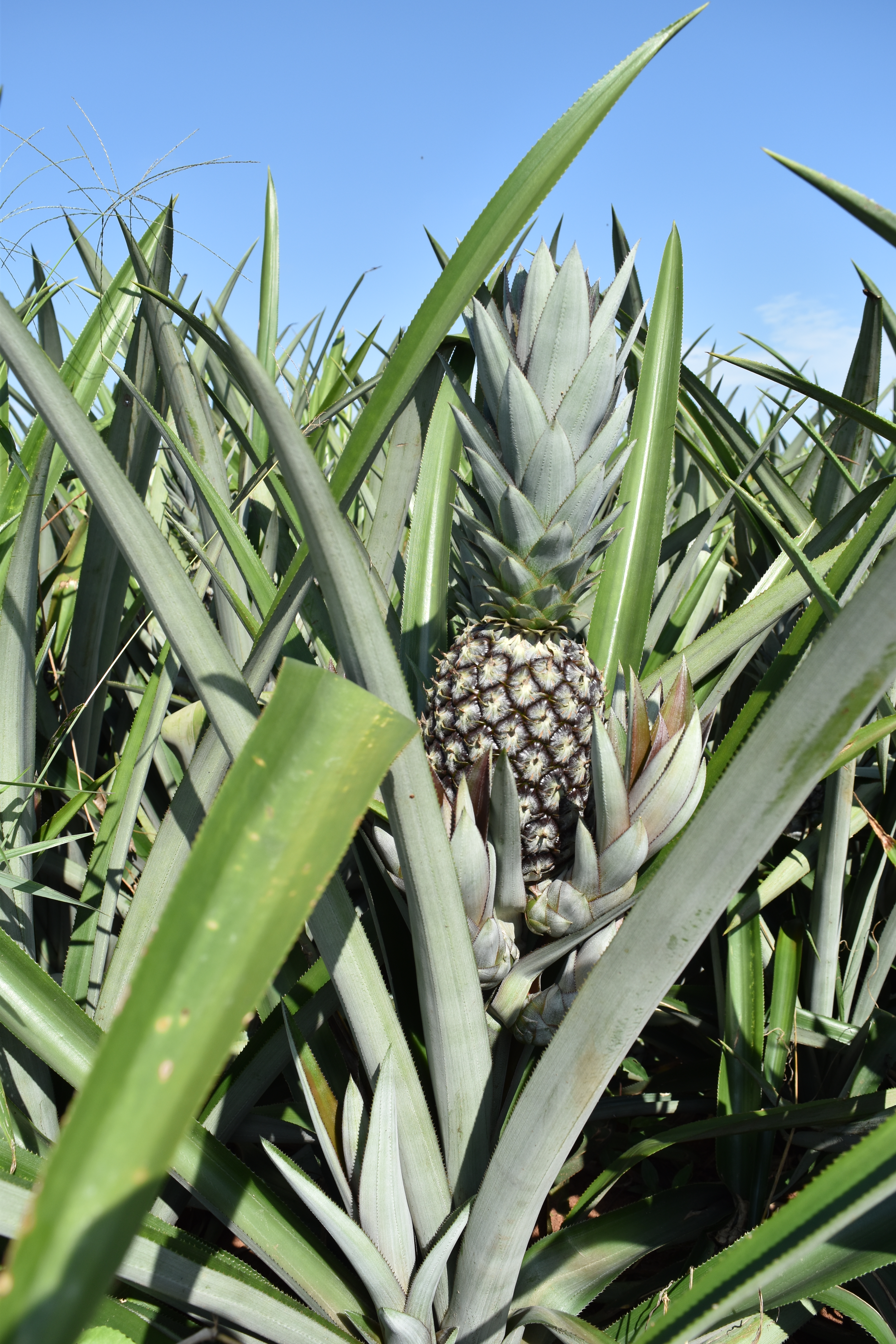
#2 Which country exports the most pineapples
- Costa Rica
- Benin
- South Africa
- Netherlands
#3 In which region are the majority of the world’s pineapples grown?
- Europe
- South America
- Southeast Asia
- Central America
#4 Once harvested, pineapples ripen within a week.
- True
- False
#5 The skins, core, and ends of a pineapple can be used to make which of the following?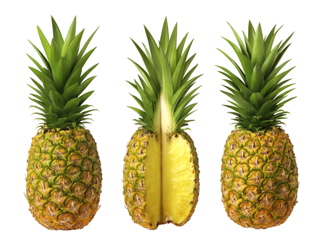
- Alcohol
- Vinegar
- All of the above
- None of the above
#6 What color are the pineapple plant’s flowers?
- Red
- Yellow
- Orange
- Trick question, pineapple plants don’t have flowers
Extra Credit Question
#7 What is your position on the age old debate about whether or not pineapple an appropriate pizza topping?
- I love some pineapple on my pizza!
- Pineapple does not belong on pizza!
- I can write you an essay about my stance
- I am undecided on the issue
Below are the trivia answers. Find out how you did!
#1 C #2 A #3 C #4 False #5 C #6 A


World Environment Day (WED) has been an annual call to action since 1974. WED is a widely celebrated event that allows individuals in over 100 countries to bring public awareness to the biggest issues affecting our environment. In just the past five years, this day has highlighted numerous urgent issues ranging from a greener global economy, raising awareness for climate change, reducing the growth rate and preserving the planet’s resources. Above all though, WED serves as the “people’s day” so we as individuals can be a representative of change and inspire our global community to take better care of our Earth.
Our name, “Partners for Development (PfD)” summarizes our approach of working with various groups of people to achieve sustainable change. We deliver those sustainable solutions by focusing on three key areas: healthy communities, economic empowerment, and agricultural development. PfD’s project in Benin is a great example of how our organization is not only raising awareness, but also bringing about change to improve our global environment. PfD is training local farmers to increase harvests through better growing techniques. Those strategies that coincide with WED’s vision of creating a more sustainable environment included decreasing harvest spoilage, appropriating the use of pesticides and improving water and soil resources. Through our work in Benin, PfD has accomplished the following:
● 60% of farmers participating now use pesticides in a safer and more effective manner by utilizing strategies such as proper dosage and eliminating unnecessary environmental health hazards.
● 21 solar dryers were used during cooking demonstrations with farmer groups to enable them to continue with eco-friendly post-harvest vegetable processing activities.
● We successfully tested two solar irrigation pumps that are able to reduce irrigation cost and pollution in Northern and Southern Benin.
PfD is celebrating this World Environment Day by continuing to make a difference in the world by improving the quality of life and collectively changing behaviors to support sustainable lifestyles. PfD envisions a more just, peaceful, and environmentally sustainable world and partners with local organizations to bring upon lasting change.

Would you like to make an impact on World Environment Day? Show your support by sharing on social media and tagging @Partners4dev on Twitter or following us on Facebook.
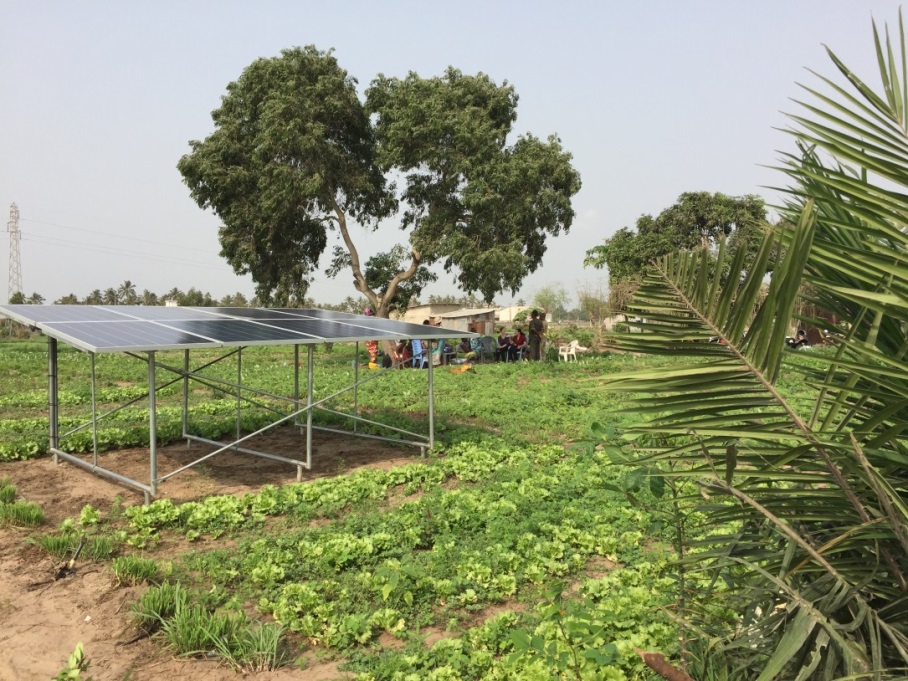
Agriculture accounts for 70% of Benin’s employment and 35% of its GDP, making agricultural production an area of critical development. Improving current irrigation methods can significantly increase production and processing for local farmers by enabling them to produce even during the two dry seasons, because it gives farmers the ability to artificially provide water for their land without relying on rainfall. The common irrigation methods used by farmers in Benin, especially during the two dry seasons (from November to February and during August and September), totaling six months, are gas-powered pumps and manual watering by hand. A manual irrigation system requires a large amount of labor and often results in crop wastage from improper watering. Gas powered irrigation pumps are very expensive to operate and emit a substantial amount of pollution into the air and soil. PfD hypothesized that farmers in Benin would greatly benefit from cost effective, solar based irrigation technologies that are environmentally friendly, both for the farmer and the soil.
For the GREEN Project in Benin, PfD tested solar-powered irrigation pumps to determine if they could be a cost-effective approach and nonpolluting method to improving vegetable production. Solar panels are installed in each solar irrigation pump to power the surface pump’s internal electric motor. Once the motor is running, water is pumped from the pond directly onto the fields through hoses or sprinklers, or pumped into storage tanks to be used for later. The advantages of a water solar irrigation pump include:
- No fuel cost
- Non-polluting
- Low maintenance cost
- Produces water when vegetables need it most
- Highly reliable and durable
- Easy to operate
- Easy water storage
For the GREEN Project in Benin, PfD tested solar-powered irrigation pumps to determine if they could be a cost-effective approach and nonpolluting method to improving vegetable production. The two types of solar-powered irrigation pumps tested for the pilot were GRUNDFOS and LORENTZ PS 150. Both models have been used to power irrigation systems in northern states of Benin, but neither had ever been tried in the southern region of the country, where PfD operates. PfD brought 450 farmers to six different test sites throughout the southern regions to participate in the pilot.
Results from the test exhibited that both the GRUNDFOS pump and the LORENTZ PS 150 pump can be used effectively in southern Benin and would substantially reduce irrigation cost and pollution. Both pumps are also guaranteed for 25 years, which could potentially save farmers $63,000 or more during that time period. The German Cooperative Development Agency has also agreed to provide a reduction of up to 40% of the initial installation cost to convert to solar-powered agricultural equipment for all Beninese farmers for the next five years. Several GREEN farmers expressed interest in buying the solar system and in taking advantage of the reduced price.

Shortly after attending the test pilot, farmers installed a solar irrigation system in the Semi-Podji district. The group, which used a gas-powered pump before, notes that the new solar irrigation system covers around 2.5 acres of land and has saved them over $200 per month, which is a considerable amount of money for the group. Through the GREEN Project, PfD was able to effectively show how using innovative technologies like the solar-powered irrigation pump can be used to achieve sustainable development in communities. We hope that many other farmers will transition to a solar-powered irrigation pump system to achieve the same results.
Partners for Development is always seeking support from individuals and organizations in order to improve the quality of life in developing countries. Become a Partner for Development Today! With your contribution, other innovative technologies and key activities can be implemented to make a difference in the lives of those that need it most. To make a gift please click here!
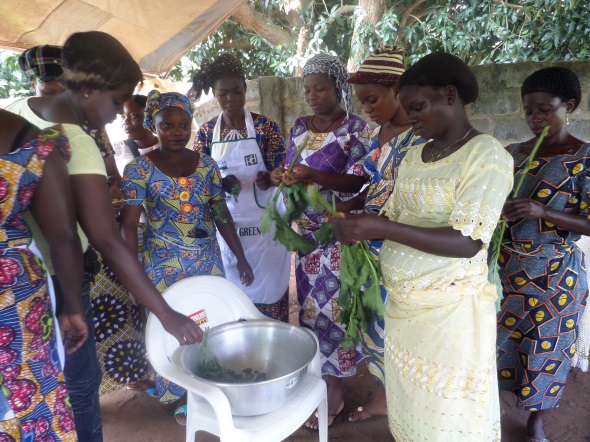
By: Nancy P. Harris, Partners for Development Board Chair
Recently, we shared a post about how the GREEN project is tackling malnutrition in Benin, working towards healthier families and healthier communities. Now, PfD Board Chair Nancy P. Harris shares her first-hand experience from a recent visit to Benin of what implementation looks (and tastes!) like on the ground:
On October 1st, I visited with the Partners for Development (PfD) team in Cotonou, Benin. It was a delight to finally meet the dedicated GREEN project team and visit the field to meet with community members who are making a difference in the fight against malnutrition in Benin.
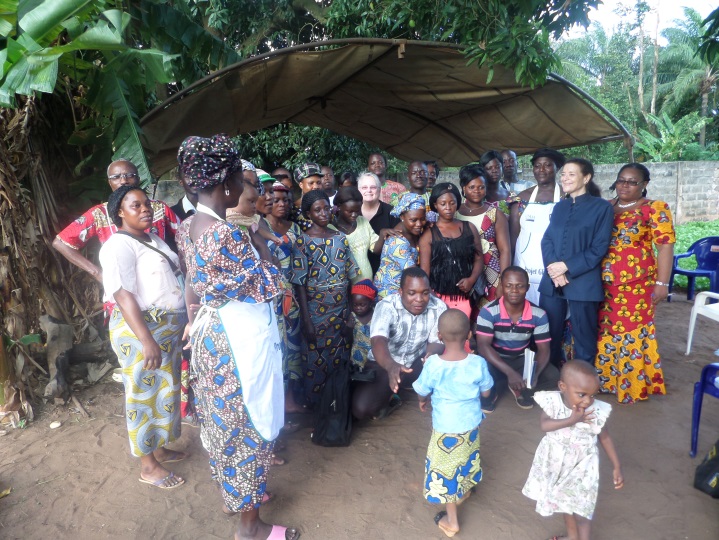 The morning began with the roundtable discussion, organized by PfD, which brought together a number of NGOs working on nutrition issues in the country, to discuss their activities and how we might collaborate with each other in the field. PfD’s nutrition and hygiene coordinator, Irvine Minaflinou gave a description of the GREEN project’s promotion of proper preparation and consumption of vegetables and fruit to combat the low consumption in Benin and corresponding high rates of long-term health problems. The roundtable facilitated valuable networking and brainstorming on low-cost ways to collaborate. I am hopeful this effort will lead to ongoing collaborative action.
The morning began with the roundtable discussion, organized by PfD, which brought together a number of NGOs working on nutrition issues in the country, to discuss their activities and how we might collaborate with each other in the field. PfD’s nutrition and hygiene coordinator, Irvine Minaflinou gave a description of the GREEN project’s promotion of proper preparation and consumption of vegetables and fruit to combat the low consumption in Benin and corresponding high rates of long-term health problems. The roundtable facilitated valuable networking and brainstorming on low-cost ways to collaborate. I am hopeful this effort will lead to ongoing collaborative action.
After the roundtable, I met with PfD staff for a delightful lunch of local dishes, many of which reminded me of those I enjoyed during my time in Nigeria. Then it was off to the village of Togoudo Agonkanmey, on the outskirts of Cotonou. Here we met the Allowanou (roughly translated as “we work hard”) vegetable producer’s group on their farm. I could tell this farmers’ group was a longtime participant in the GREEN project, as they had the best looking fields of vegetables I had ever seen, particularly the lettuce! The farmers told me that this success was made possible through the GREEN project technical trainings and micro credit loans. And, of course, success came through their hard work.
 After greeting us with a welcome song, the Allowanou Group – comprised of 15 women and 6 men – gave a demonstration of culinary techniques they learned through the GREEN project to ensure good hygiene and preserve the vegetables’ nutrients. They prepared what was, on the surface, fairly standard local fare: a corn meal porridge called pate and a mix of local greens, onions, and fish called ‘sauce legume’. Traditional cooking techniques destroy or leech away many nutrients in what would otherwise be a nutritious meal. Traditionally, the sauce is cooked too long, and the vegetable cooking water (rich in vitamins and minerals) is thrown out. The GREEN project staff taught simple ways to avoid nutrient loss, and dramatically increase the meal’s nutritional benefits. Cooking times are reduced, the cooking water is used for the sauce and the pate, and the rest is simply consumed with lime juice. In addition, the Allowanou Group is now adding moringa leaves to their sauces. Moringa trees grow everywhere in Benin and its leaves are high in protein, vitamins and minerals. PfD Benin is cooperating with the Hunger Project to promote the use of moringa as a cost-effective way of combating malnutrition. The demonstration, enlivened by local songs and dancing, was followed by a taste of the meal and – even after our large lunch – the food was a tasty treat (in addition to being very nutritious)!
After greeting us with a welcome song, the Allowanou Group – comprised of 15 women and 6 men – gave a demonstration of culinary techniques they learned through the GREEN project to ensure good hygiene and preserve the vegetables’ nutrients. They prepared what was, on the surface, fairly standard local fare: a corn meal porridge called pate and a mix of local greens, onions, and fish called ‘sauce legume’. Traditional cooking techniques destroy or leech away many nutrients in what would otherwise be a nutritious meal. Traditionally, the sauce is cooked too long, and the vegetable cooking water (rich in vitamins and minerals) is thrown out. The GREEN project staff taught simple ways to avoid nutrient loss, and dramatically increase the meal’s nutritional benefits. Cooking times are reduced, the cooking water is used for the sauce and the pate, and the rest is simply consumed with lime juice. In addition, the Allowanou Group is now adding moringa leaves to their sauces. Moringa trees grow everywhere in Benin and its leaves are high in protein, vitamins and minerals. PfD Benin is cooperating with the Hunger Project to promote the use of moringa as a cost-effective way of combating malnutrition. The demonstration, enlivened by local songs and dancing, was followed by a taste of the meal and – even after our large lunch – the food was a tasty treat (in addition to being very nutritious)!
All too soon, we said goodbye to our hosts at Allowanou, and my visit with PfD Benin came to an end. I came away with a feeling that communities are gaining greater understanding of the issues affecting nutrition in Benin, and that organizations can work together to meet these challenges. I continue to be impressed by the good work that PfD does in Benin and elsewhere. I look forward to hearing more about PfD’s nutrition activities and encourage you to do the same by signing up to receive the newsletter.
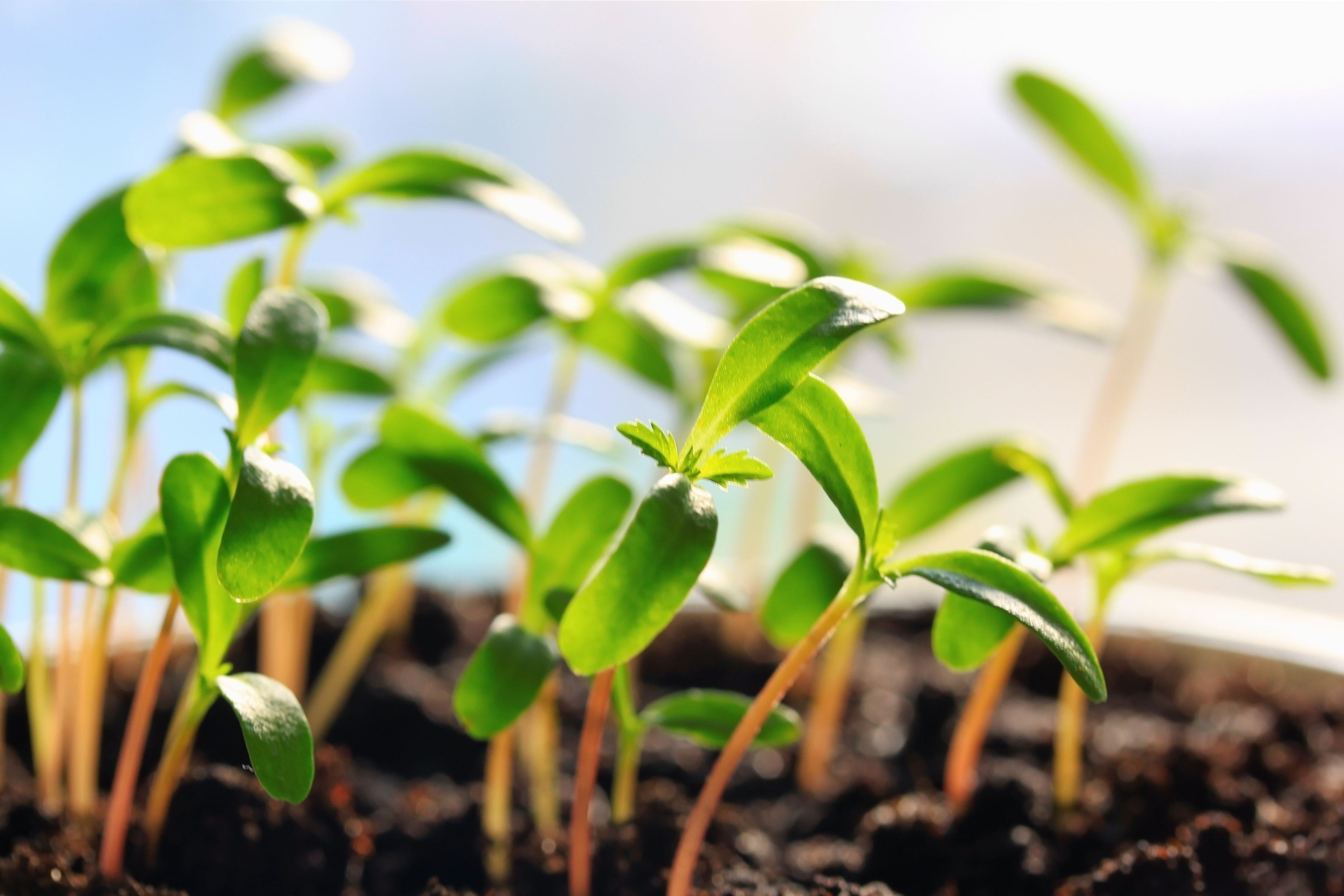
Meet Mr. Cyprien Hindeme, a vegetable farmer in the Allada region of the Atlantique Department in Southern Benin, who used the knowledge and skills he learned through the GREEN project to improve his pineapple production and sales.
The GREEN project (GREEN blog post) trainings taught Cyprien modern cultivation techniques and important farming skills, such as the proper use of chemical fertilizers and pesticides. Through the practical marketing workshops, he learned how to become market orientated in his production, and he continues to use the weekly vegetable prices he receives through SMS messages on his cellphone to negotiate sales of his vegetables even before they reach the local markets. This way, not only does he ensure he gets the best prices for his produce, but he also cuts down transportation costs and reduces post-harvest losses.
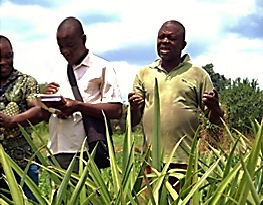
But vegetables are only part of Cyprien’s income, as he also has a pineapple grove. After witnessing the success of the GREEN project techniques with his cabbage, Cyprien decided to use this knowledge and skills to improve his sugar loaf pineapple production.
By modifying his use of fertilizers and insecticide to comply with GREEN recommendations, he grew larger, juicier pineapples. He also used his marketing skills to research the local and regional pineapple markets and diversify his clients. Now Cyprien delivers his higher quality pineapples to wholesalers in Togo and Burkina Faso, while still servicing buyers in his local market. He also now supplies his top quality fruit to three prominent hotels in the Atlantique Department.
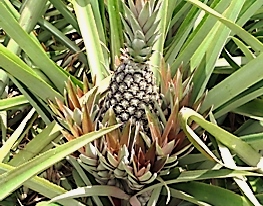
With additional income, Cyprien was able to send one of his children to Benin’s agricultural technical college, ensuring his future and the continued success of his family’s farm. He was also able to buy laptop computers for both of his children attending university, who have now developed marketable computer skills. Cyprien attributes his success to the GREEN project trainings, and says, “now that GREEN helped me with my cabbages and pineapples, now I am ready to try other crops too.”

